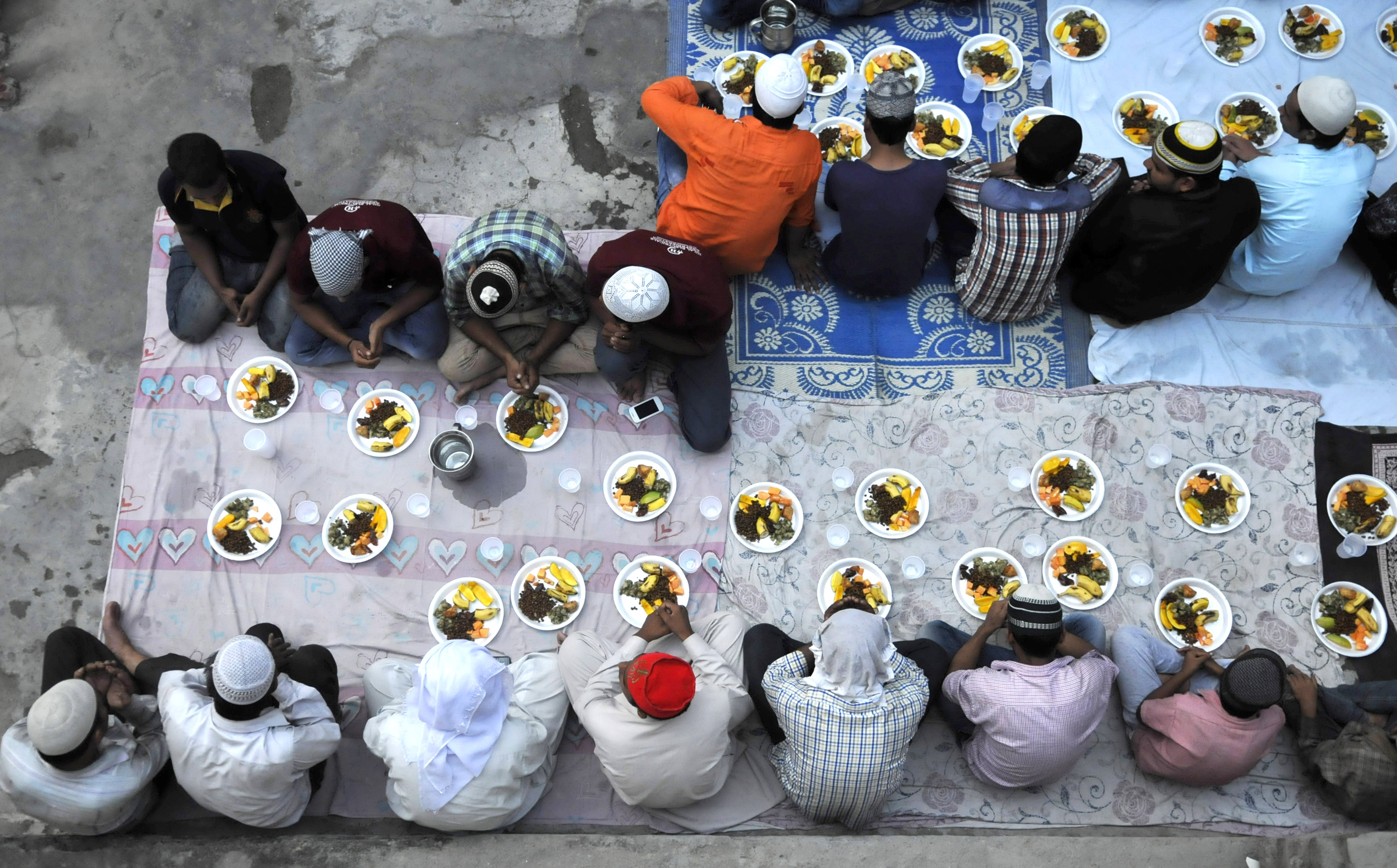Current Section: model

Lesson Fasting Ramadan
Allah mandated fasting on the Muslims for one month in the year. It is the blessed month of Ramadan and he made it the fourth pillar of the Pillars of Islam. Allah Exalted said ﴾O you who have believed, fasting has been ordained upon you as it was ordained upon those before you, that you may become heedful [of Allah]﴿ [Al-Baqarah: 183]

The meaning of fasting in Islam: worshiping Allah by restraining and forbidding oneself from eating, drinking, intercourse, and the other causes of breaking fast, from true fajr (dawn), and it is the time fajr prayer comes in, until the setting of the sun, and it is the time maghrib prayer comes in.

The Virtue of the Month of Ramadan
The month of Ramadan is the ninth month of the lunar months in the Islamic calendar, and it is the best month of the year. Allah distinguished it from the other months with numerous virtues, and from those virtues:
Allah Exalted said ﴾The month of Ramadan in which the Quran was sent down as guidance for the people and clear proofs of guidance and criterion﴿ [Al-Baqarah: 185]

(The Prophet) ﷺ said : << If Ramadan comes, the gates of Jannah are opened, the gates of Jahannam (Hell) are closed, and the devils are chained>> (Al-Bukhari 3277, Muslim 1079). So Allah has prepared it for his slaves to approach it by doing acts of obedience (to Allah) and leaving objectionable actions.

The Prophet ﷺ said <

It is the night that Allah informed, in his book, that righteous action in it is better than the action in a thousand months. He Exalted said ﴾The Night of Decree is better than a thousand months﴿ [Al-Qadr: 3]. It is an unspecified night from the last ten nights of Ramadan. Whomever stands it (in night prayer) with faith and reckoning, forgiven for them what has passed from his sins.

The Virtue of Fasting
Fasting has many virtues mentioned in Islamic legislation. Among them are the following:
1. The Forgiveness of Sins
Whomever fasts Ramadan with belief in Allah, conforming to his commands, affirming the truth of what was mentioned of its virtue, taking into account the reward with Allah, (then) forgiven for them what has passed from their sins, as (the Prophet) ﷺ said <
As (the Prophet) ﷺ said <

That In Jannah There is a Gate Called "Ar-Rayyan", None Enter From It Except the Fasting People
(The Prophet) ﷺ said <
4. That Allah Has Affiliated the Reward of Fasting and Compensation Upon It To Him, Immaculate Is He
Whomever's compensation and reward is upon a noble, great, generous, merciful one, then let them take good tidings of what Allah has prepared for them. (The Prophet) ﷺ said in a qudsi hadith (a hadith that quotes Allah) that he narrates from his Lord <<"Every action of the child of Adam is for him except fasting for it is for me and I reward for it">> (Al-Bukhari 1904, Muslim 1151).
The Wisdom of Fasting
Allah mandated fasting for many points of wisdom and fine matters in religion and worldly life. From that:
That is because fasting is an act of worship by which the slave gets closer to their lord by leaving the things they love and rebuffing their permissible lusts in conformance to their Lord's command and avoiding His prohibition.

The self-denial of the fasting person from permissible things in conformance to the order of Allah Exalted makes them more able to restrain their lusts from acts of disobedience and sins.

Indeed that is because fasting is a trial of the suffering of deprivation and hunger, and a reminder of the poor who suffer deprivation in their lives. Thus it reminds the slave of their poor brethren and how they endure the two bitter matters of hunger and thirst so they strive to put forth the helping hand and assistance for them.




